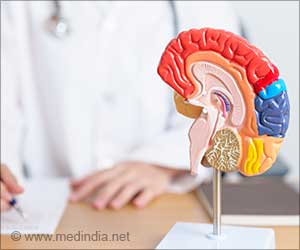US researchers have shown that subtle signs may enable early prediction of Huntington’s disease, an incurable genetic disorder that affects movement, thinking, and some aspects of personality.
Dr. Jane S. Paulsen of the University of Iowa Roy J. and Lucille A. Carver College of Medicine in Iowa City studied 218 people in North America, Europe, and Australia.Each of the participants had at least one parent who was suffering from Huntington’s disease, an indication that they had 50 per cent chances of developing the condition.
All the participants were healthy at the beginning of the study, with normal scores on movement tests or minimal signs of movement problems. They were followed for up to 4.5 years.
People who had minimal motor problems at the beginning of the study were nearly five times more likely to be diagnosed with the disease a year and a half later than participants who had no movement problems initially. They were 3.5 times more likely to be diagnosed with the disease after three years.
The researchers also tested their cognitive abilities through a verbal fluency test. Each participant was given a particular alphabet, and asked to speak in 60 seconds as many words as he could starting with that alphabet.
With the help of a memory and writing task, it was also tested how quickly the participants could combine thinking and movement.
Advertisement
'These results will help us understand how and who will develop Huntington's, which is important information as potential treatments are developed,' said the study authors.
Advertisement
Source-ANI
SRM/B






